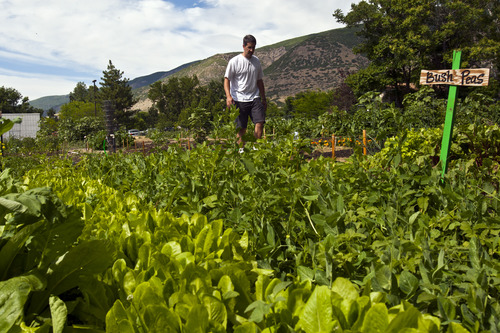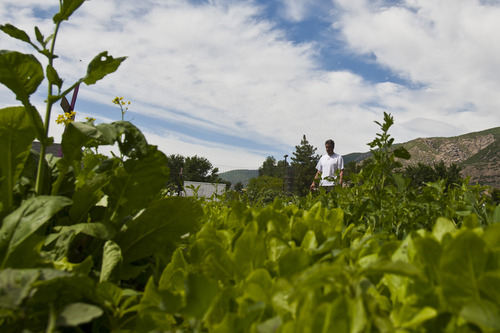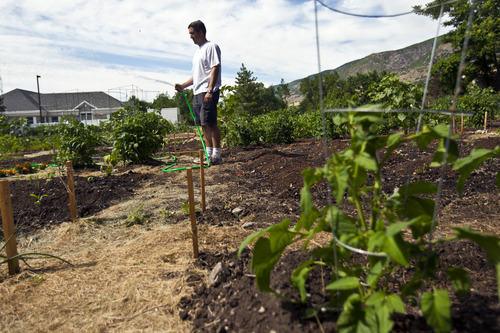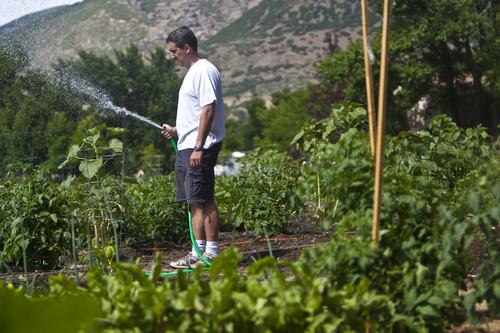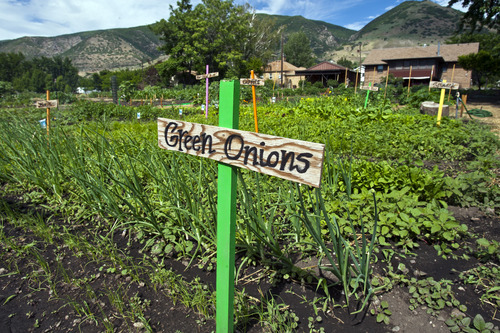This is an archived article that was published on sltrib.com in 2013, and information in the article may be outdated. It is provided only for personal research purposes and may not be reprinted.
Centerville Assistant City Manager Blaine Lutz knows the value of social media.
When a major windstorm ripped through Davis County in 2011, officials used Twitter to distribute emergency information quickly.
He also knows how it can take a minor community conflict and turn it into an international controversy.
Connie Gashler took to Facebook after learning that Centerville wanted her 73-year-old father, Ted, a retired agricultural expert from the United States Agency for International Development, to pull up his small corn crop. The issue? He had planted an heirloom seed instead of a more common, corporate-produced variety.
Gashler, a single mother of three who lives in Albuquerque, N.M., angrily denounced Centerville and Monsanto, a huge corporate seed producer. She incorrectly thought the ban on heirloom seeds applied throughout the city.
"Monsanto's filthy tentacles reach everywhere it seems," she wrote. "My dad has been an outspoken opponent of the company since he worked with farmers in former Soviet countries in the 1990s. He even testified before Congress once about the illegal practices, and damage the company was doing to the planet."
That post unleashed a storm of protest from around the world, with hundreds of social media enthusiasts who dislike Monsanto jumping into the fray. Gashler said she had 2,700 likes on her Facebook page alone and guessed about 30,000 people read her post.
That was last weekend.
Monday morning, stuffed email inboxes and ringing phones greeted workers at Centerville City Hall.
Employees fielded calls from national gardening magazines and local television news stations.
"We honestly had no idea what was going on as a city," Lutz said. "My first response when I got here at 8:30 a.m. was that this had to be another city. Every state has a Centerville. I figured this was a Midwest corn issue, and people got us mixed up."
Lutz quickly found out what happened. Centerville's community garden leases out small strips of land each year as a fundraiser for the city's museum. The garden is run by volunteers, many with master gardener certificates. Years ago, there was a concern that using different kinds of corn seed could result in cross-pollination, potentially damaging the flavor of the corn. So community gardeners were asked to plant one particular strain, which was not produced by Monsanto.
It took five or six Centerville employees about five hours each to respond to the outcry.
According to Erica Brown, vice president of marketing for Thanksgiving Point, companies and public agencies are learning how to respond to social media controversies and also how new media can be useful. She has experienced both.
Thanksgiving Point posted a contest this week offering free Utah Symphony tickets in exchange for suggestions on other events at the facility.
She received 200 suggestions in 24 hours.
"People suggested movie nights, concerts and tea parties," she said. "They love being asked."
On the other side, during a popular "Two Buck Tuesday" promotion at Thanksgiving Point, a patron snapped a photo of a mother at the deli who brought in her children's training potty. The child was naked and sitting on the potty in the middle of the restaurant. When it was posted on the photographer's Facebook page, what Brown calls "Pottygate" blew up internationally.
"We were unaware anyone had done this, and we were shocked like everybody else about the place where it happened," said Brown, who said the photo was picked up by local television, Good Morning America and E! News to name just a few. "It was an overwhelming thing that we hope never to repeat … But we responded respectfully and truthfully. People calmed down. Nothing we did was wrong. We just weren't aware."
Connie Gashler also was caught unaware.
"I never expected even 1/10 of what happened," she said. "It's amazing how it exploded."
When Gashler found out the facts, she fixed the errors in subsequent posts. But she continued to use Facebook to educate followers about genetically altered seeds as did many people who joined in the discussion.
Ted Gashler wishes the corn controversy would just go away. The community garden gave him a second plot and he is happily growing the corn seed he's used since the 1970s.
Twitter @tribtomwharton




